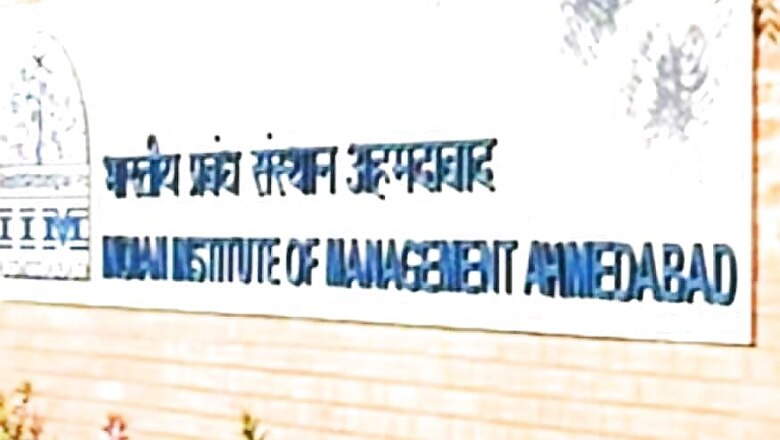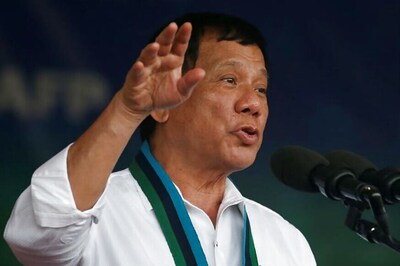
views
Ask any Indian Institute of Management (IIM) professor, “If one were to have a competition restricted to ‘3% of the total population’ instead of ‘the entire population’, which will have better outcome?”
In my mind, this is a moot question. Less than 10% of Indian social groups account for over 95% of all faculty members at IIMs, and this might be generous, for anecdotal accounts suggest that an even narrower pool of upper castes accounts for the vast majority of faculty positions.
If this is indeed the story of post-independent India even after 70 years of government-imposed affirmative action, then something is not working. If the so-called self-governing market forces are not catering to the 97% of the population, then the government must intervene to correct these imbalances.
Mind you, this restatement had to be made, despite it being the law. These “elites” have deliberately not implemented the law. It is good that the government this time has ordered these institutes.
Some IIMs are purporting the “Cricket Team Selection” argument. A small region called Vidarbha became Ranji champions. The Vidarbha Cricket Association set out a programme to find the talent in the interiors of Vidarbha and brought players from there to residential academy in Nagpur.
A minion became champion because of equal opportunity to people from interior areas, who without proper facilities would not have had the chance to play for Vidarbha.
At the national level, there was a time when more than half the team would be from Mumbai. India didn't become the world champion then. When players from tier-two towns like Ranchi, Meerut and Nagpur were inducted into the team, India became a world champion. Today the Indian team is diverse, both by region and caste. And all of this is on merit. Only when we widen the catchment area will the results of the competition will improve. We need to make sure that everyone has an “equal” chance of winning.
By the way, South Africa provides reservation for black Africans at the domestic level. It is mandated that the team has six players of colour. While some may laugh when Social Welfare minister Ramdas Athawale speaks, he should be taken seriously when he asks for reservation in the cricket team. When the United States Supreme Court upheld affirmative action, the main objective was to make classroom discussions wholesome by ensuring they reflect the true composition of the society.
This same argument needs to be extended to the other side in the classroom. Until and unless teachers also represent society, how will classroom discussions become wholesome? If the classroom is not inclusive (diverse students and teachers), then we run the risk of forming elitist institutions cut off from ground realities.
I still remember IIM-Calcutta Director’s address to our batch. He said, the gap between the poor and the rich is continuously increasing. He warned that if this gap continues to grow, it can lead to a catastrophic event, which severely disrupts the progress of the nation. Democracy is a means of achieving change in a peaceful way. And democratic forces have acted to ensure inclusivity in teaching staff.
IIMs were nurtured by government. Now IIMs do not like government interference and want to increase fees, so they are not dependent on government money. This is another way of depriving the poor of quality education. Today the fees are skyrocketing due to lobbying by these teachers who are more interested in their own welfare than what is needed for the society and the nation.
The faculty of IIMs have deviated from the “common good” to “protecting their salaries and seeking independence from the government”. This is how elites think. Unless the teaching staff comes from the deprived sections of society, there will be no one to fight for them. Incidentally, these “elites” had opposed access to education for women and to the Scheduled Castes and Scheduled Tribes for centuries to keep it meritorious.
After reservations, these same “elites” worried about the dilution of merit. However, there is no proof of dilution of merit due to reservation.
The report from IIM placement offices found no difference between the placement packages of reserved and non-reserved students. Hence, this dilution of merit argument is a bogie.
Let’s look at the percentage of women in Indian Institutes of Technology (IITs). It is less than 10%. Should it not be 50%? What prevents girl’s ratio from reaching 50% is -- years of deprivation. We should be able to either correct these factors or else provide corrective action in the form of reservation to girls. Their situation is exactly like that of SC/ST. By not enabling girls, we are denying 50% of the population to participate in the national discourse. Look at how elites come up with “instruments of exclusion”.
By making NEET exams mandatory across the nation, again the education is getting out of reach of the poor. How? Just when the rural masses were catching up on cracking the 12th exams, the elites came up with NEET.
To crack NEET or JEE, one requires extensive coaching. Rural schools must constantly play the catch-up game. A study by the Tamil Nadu government showed that the selection of poor and rural people has diminished post implementation of NEET.
Till development reaches everyone, the government must make a conscious effort to include the deprived - rural, women and lower castes. This will benefit the society and the nation. I studied at IIM Calcutta. The professor who interviewed me taught us a subject. I had done a project, along with my wing-mate. It was conceived by me and I had done at least half the work, if not more. We knew the project had turned out well and the professor was clearly impressed. Since he knew that I came from the reserved category, the professor had the audacity to specifically ask me, ‘how much did you contribute?’.
Both my teammate and I were taken aback by this question. Of course, both of us said we had worked hard for the project. Such bias and discrimination are, unfortunately, standard practice on Indian campuses, resulting in lower sessional and practical marks.
These elite institutes will find ways to defy such orders. To deal with wilful defiance, the government should invoke the SC/ST Atrocity Act. We recently met the IIM Calcutta director and urged him to implement faculty reservation. He asked us to show him a letter mandating faculty reservation. We had to politely tell him that the onus of showing the “exemption from reservation” letter was on him. We are seeing rules similarly being flouted by IIM Ahmedabad for the PhD programme.
This institute remains the only one to oppose reservation for its PhD course. The government must issue a directive to all IIMs that they must follow reservations in their PhD programmes as well. For if reservation in PhD is not provided, how will they get candidates for faculty positions?
(The writer was the main petitioner in a High Court case against IIM-Ahmedabad for failing to implement reservation in faculty and PhD positions. He is based in Chicago and am alumnus of IIM Calcutta.)


















Comments
0 comment